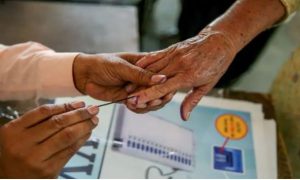UID number to help avoid over-counting, say sources; Experts say Aadhar incomplete measure.
The government is planning to use the Aadhar data in abig way for the coming population-census exercise, in addition to deploying physical workforce for enumeration at each and every household, official sources aware of the development told FE.
“Aadhar data will ensure that double counting doesn’t take place. At times one person is counted twice in two different households, which leads to over-counting, that won’t happen (with the use of Aadhar),” a source said.
Read More: Govt extends deadline to update Aadhaar details online: List of details you can update for free
Besides the total number of people living in the Indian territory, the government also collects data of the date of birth, marital status, age, gender, income and occupation etc. from households, in the population census exercise. “All the data of all the households can’t be fetched through Aadhar, therefore, physical presence of authorities would be required as first resort ,” said the source.
The current move indicates a change in stance. Minister of State for Electronics and IT Rajeev Chandrasekhar had informed Parliament in April 2023 that the office of the Registrar General and Census Commissioner of India has “no plans” to use Aadhaar data for census exercise.
But, notably, the Ministry of Home Affairs (MHA) in June 2023 issued a gazette notification allowing the office of Registrar General and Census Commissioner to perform Aadhaar authentication for the registration of births and deaths.
Read More: March 31 deadline: MF investors must re-do KYC or be blocked from all transactions
The population-census exercise, which was scheduled to take place in 2021, was delayed due to the onset of the Covid-19 pandemic. The delays in census has drawn flak from statisticians and many public policy experts and analysts. The government has not yet kick-started the census process, but has done “some background” work, said sources.
“So far, one phase of the exercise is partly complete…administrative blocks have been listed, based on which housing listing process is taking place. This may take some more time, before the second phase of the census begins,” another source said.
The second-phase of the population-census will involve counting the number of individuals in households. It is likely to take around 12 months for the second phase to conclude, and the process is seen beginning post general elections.
Read More: Good Friday bank holiday 2024: Are banks closed on March 29?
A meeting of the Union Cabinet in December 2019 had approved the proposal for conducting census of India 2021 at a cost of Rs 8,700 crore and updating the National Population Register (NPR) at a cost of Rs 3,900 crore.
The house listing phase of the census and the exercise to update the NPR were initially scheduled to be carried out across the country from April 1 to September 30, 2020 but postponed due to the COVID-19 outbreak.
The interim budget 2023-24 has allocated Rs 1,277.80 crore for census, significantly lower from 2021-22 when Rs 3,768 crore was allocated.
Experts, however, say data from Aadhar can only be partly used for the census exercise. “Aadhar data forms only a subset of the projected population and this methodology is insufficient,” said Lekha Chakraborty, professor, National Institute of Public Finance and Policy.
Former Chief Statistician of India Pronab Sen said: “Aadhar is an incomplete measure for counting population. One day babies don’t have Aadhar cards. Also, Aadhar doesn’t give data of locations, people migrate.”
Moreover, Chakraborty said that the use of Aadhar for population census also encounters ethical concerns related to data privacy and consent. “Unless we strengthen the regulatory framework of digital infrastructure, this can be a recipe for disaster,” she said.
In 2018, the Supreme Court had upheld the constitutional validity of the government’s Aadhaar scheme, but scrapped provisions that were seen as enabling surveillance by the state. The apex court had ruled that Aadhaar won’t be mandatory for opening bank accounts, getting a phone connection or getting benefits from Direct Benefit Transfer (DBT).





































